The Fungi Frontier: Exploring Mushroom Extracts and Tinctures for Health
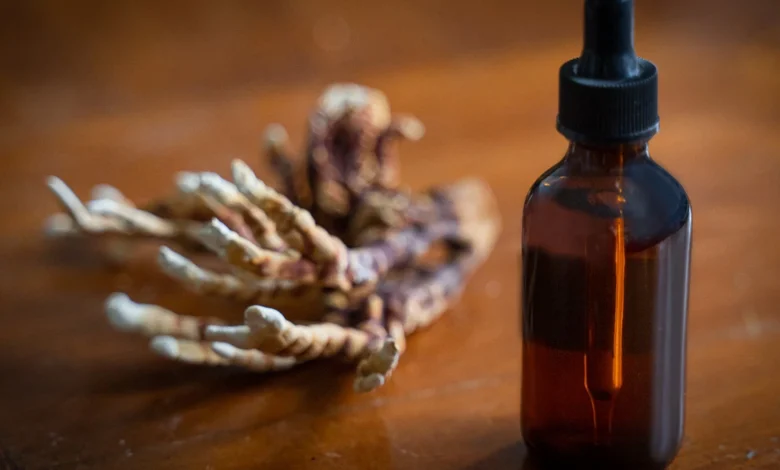
In a rapidly modernizing world, there’s a noticeable global pivot toward ancient remedies, a shift underscored by a fascinating statistic: a whopping 40% of adults are now integrating complementary and alternative medicines into their health regimens. Central to this trend is the burgeoning world of mushroom extracts and tinctures. Long relegated to the annals of traditional medicines or simply used as culinary delights, mushrooms have found themselves at the epicenter of contemporary wellness movements.
This blog post sets out to unravel the mystique of these fungi, shedding light on their medicinal properties, their long-standing historical significance, and the newfound ways in which they’re being harnessed for holistic well-being in today’s age.
The World of Medicinal Mushrooms
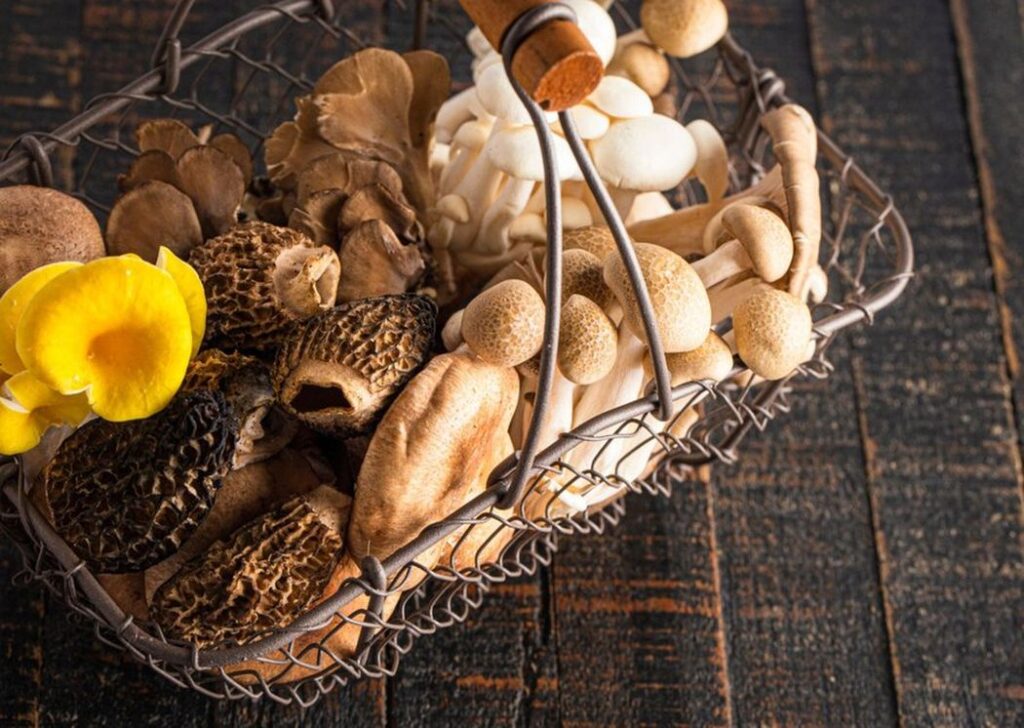
Medicinal mushrooms are neither a recent discovery nor a fleeting trend. For thousands of years, they’ve been woven into the fabric of human civilization, their potent properties providing solace to myriad ailments and conditions. Imagine ancient healers, guided by the wisdom passed down through generations, prescribing mushroom concoctions to alleviate pains or combat diseases. These fungi have been documented in the annals of various cultures, from the sacred shamanic rituals of indigenous tribes to the meticulously detailed ancient Chinese medicinal scrolls.
While their historical significance is well-documented, it’s the sheer diversity that’s truly mind-boggling. Among the estimated 2 million species of fungi, a mere 15,000 have undergone scrutiny for their medicinal properties. This indicates the vast, largely untapped reservoir of potential awaiting our discovery. As modern science and traditional knowledge converge, we find ourselves on the cusp of a fungi revolution, one that promises to redefine our relationship with health and wellness.
Key Mushroom Varieties for Health
Mushrooms, in their myriad forms and shades, aren’t just a feast for the eyes or the palate. They’re a veritable trove of medicinal benefits. Let’s journey through a few that have been recognized and revered globally:
Reishi (Ganoderma lucidum): Often dubbed the “Mushroom of Immortality,” Reishi’s rich, red exterior houses a world of health benefits. Native to Asian forests, it has long been a staple in Eastern medicine. Beyond its purported abilities to bolster the immune system, Reishi is also heralded for its potential in enhancing mental clarity and reducing stress. Its adaptogenic qualities help in balancing the body’s response to external stressors, making it a vital companion in our fast-paced lives.
Lion’s Mane (Hericium erinaceus): Bearing an uncanny resemblance to its namesake, this fluffy, white mushroom is lauded for its potential neuroprotective benefits. Ancient practitioners believed in Lion’s Mane Tincture power to boost cognitive functions, and recent studies suggest its role in nerve growth factor synthesis, which could be pivotal in combating neurodegenerative diseases.
Chaga (Inonotus obliquus): Found primarily on birch trees in cold habitats, Chaga is not your typical mushroom visually. It looks more like a darkened, rugged wood piece. Yet, beneath this exterior lies a potent antioxidant powerhouse, believed to help combat oxidative stress and support immune function.
The Science Behind Mushroom Compounds
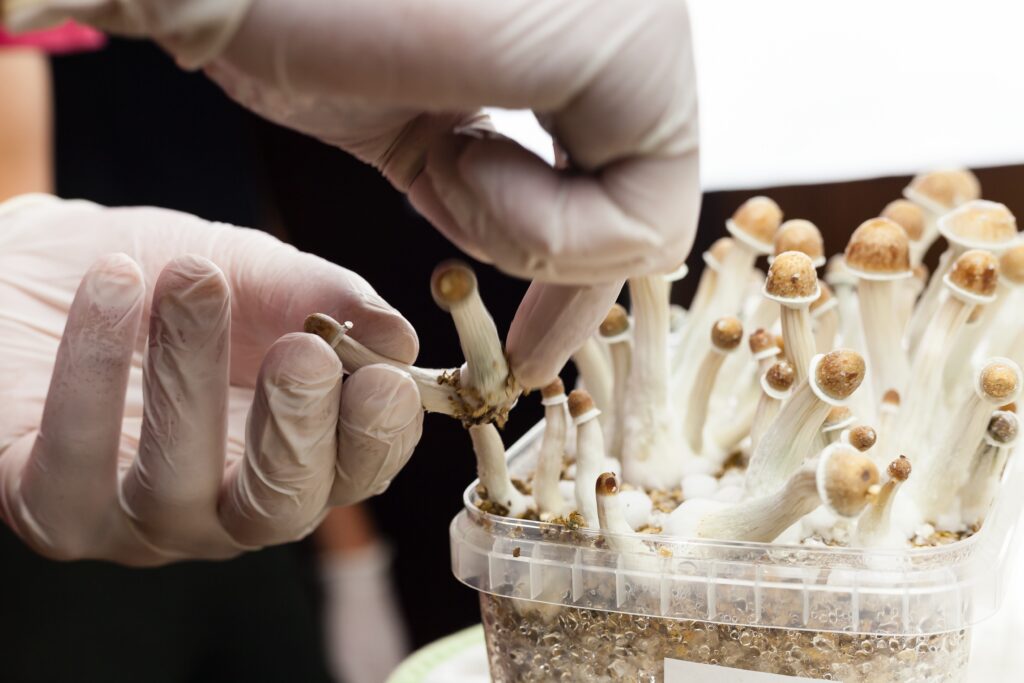
Nature’s marvels often lie in the minutiae, and mushrooms are no exception. Delve into their cellular composition, and you’ll find compounds like beta-glucans, polysaccharides, and triterpenes. Beta-glucans, in particular, have sparked scientific interest due to their potential immunomodulatory properties. They are believed to stimulate the body’s immune defenses, preparing it to fend off infections more robustly. Meanwhile, triterpenes, abundant in mushrooms like Reishi, are being researched for their potential anti-inflammatory and antitumor effects.
Polysaccharides, on the other hand, have shown promise in supporting cellular health and metabolism. But it isn’t just the individual compounds; it’s the synergistic effect of these molecules that truly harnesses the mushroom’s medicinal prowess. As science advances, we’re just beginning to scratch the surface of understanding these compounds, reinforcing age-old beliefs with empirical data.
Mushroom Extracts vs. Tinctures
Imagine wanting to harness the power of mushrooms for health, but being faced with a plethora of options. Extracts? Tinctures? What’s the difference? At their core, both are concentrated forms of mushroom goodness.
Extracts typically involve boiling mushroom fruiting bodies to derive water-soluble compounds and then further processing to obtain oil-soluble derivatives. The result? A potent concoction that packs in the mushroom’s medicinal properties.
Tinctures, however, are more of an alcoholic extraction, preserving and concentrating the mushroom’s bioactive compounds in liquid form. When it comes to potency, extracts often have the upper hand due to the dual extraction process. But if quick absorption is the goal, tinctures might just be the ticket, easily entering the bloodstream when taken sublingually. Your health goals, preferred mode of consumption, and even lifestyle can guide the choice between the two.
Health Benefits of Mushroom Extracts
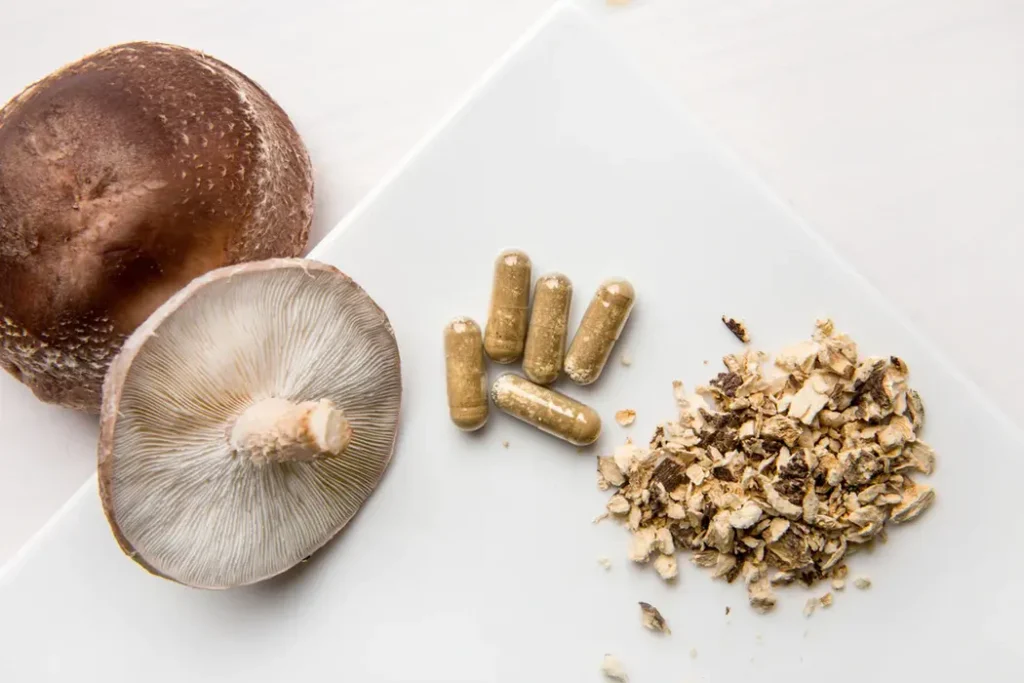
Beyond the veil of mysticism, mushrooms offer tangible health advantages. Numerous studies link them to immune system support, with mushrooms acting as immunomodulators. They’ve also demonstrated adaptogenic properties, helping the body combat stressors. Additionally, antioxidant properties found in fungi combat oxidative stress, pivotal in slowing aging processes and reducing inflammation.
Tinctures for Convenience
For those constantly on-the-move, mushroom tinctures are a godsend. These liquid extracts are quickly absorbed, especially when taken sublingually, ensuring that you don’t miss out on your daily dose. Dosage is crucial, though, and while tinctures offer convenience, they must be taken with care. Always consider seeking advice from a healthcare professional before introducing them into your regimen.
Incorporating Mushroom Extracts into Your Routine
Diversifying mushroom intake can be fun and easy. Consider adding mushroom extracts to your morning smoothie or evening tea. Capsules and powders also provide easy integration into meals. Remember, while mushrooms are potent, moderation is key. Always be wary of dosages and potential interactions with other medications or health conditions.
The Role of Mushroom Extracts in Traditional Medicine
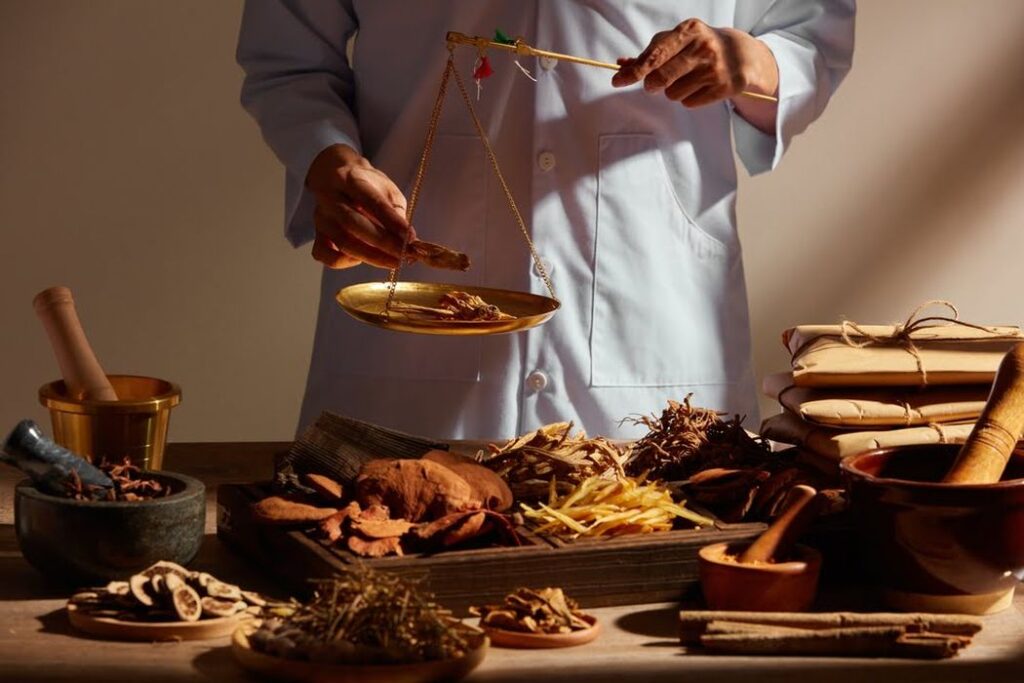
Historically, mushrooms have been more than just food or medicine; they’ve held spiritual significance. From ancient Chinese practices to Native American rituals, mushrooms have played a role in connecting the physical and spiritual realms. Their incorporation into modern health regimens bridges traditional wisdom with contemporary needs, grounding us in ancestral practices while addressing present-day health challenges.
Potential Risks and Precautions
Mushroom extracts, while beneficial, aren’t devoid of risks. Potential allergic reactions, interactions with medications, or side effects mean one should proceed with caution. Before diving into the world of fungi, it’s imperative to consult healthcare professionals, ensuring safety and appropriateness for individual health conditions.
Sustainability and Sourcing
In our quest for health, it’s vital to ensure that our remedies aren’t harming the planet. Sustainable mushroom harvesting preserves the delicate ecosystem, allowing for future generations to benefit. When sourcing, choose ethically produced products, possibly with certifications validating their sustainable and organic origins.



